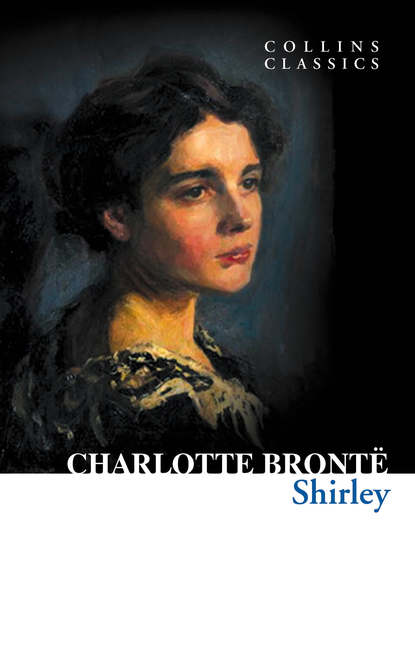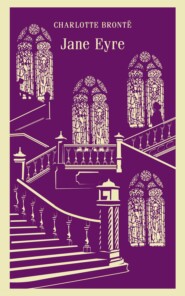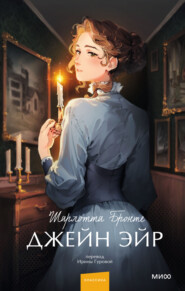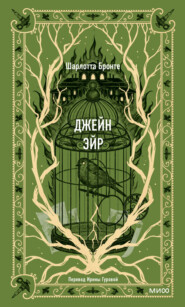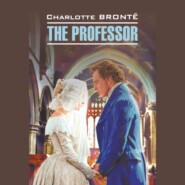По всем вопросам обращайтесь на: info@litportal.ru
(©) 2003-2025.
✖
Shirley
Настройки чтения
Размер шрифта
Высота строк
Поля
Mr. Yorke wished to know whether this interference, vigilance, and coercion would feed those who were hungry, give work to those who wanted work, and whom no man would hire. He scouted the idea of inevitable evils. He said public patience was a camel, on whose back the last atom that could be borne had already been laid, and that resistance was now a duty; the widespread spirit of disaffection against constituted authorities he regarded as the most promising sign of the times; the masters, he allowed, were truly aggrieved, but their main grievances had been heaped on them by a “corrupt, base, and bloody” government (these were Mr. Yorke’s epithets). Madmen like Pitt, demons like Castlereagh, mischievous idiots like Perceval, were the tyrants, the curses of the country, the destroyers of her trade. It was their infatuated perseverance in an unjustifiable, a hopeless, a ruinous war, which had brought the nation to its present pass. It was their monstrously oppressive taxation, it was the infamous “Orders in Council”—the originators of which deserved impeachment and the scaffold, if ever public men did—that hung a millstone about England’s neck.
“But where was the use of talking?” he demanded. “What chance was there of reason being heard in a land that was king-ridden, priest-ridden, peer-ridden; where a lunatic was the nominal monarch, an unprincipled debauchee the real ruler; where such an insult to common sense as hereditary legislators was tolerated; where such a humbug as a bench of bishops, such an arrogant abuse as a pampered, persecuting established church was endured and venerated; where a standing army was maintained, and a host of lazy parsons and their pauper families were kept on the fat of the land?”
Mr. Helstone, rising up and putting on his shovel-hat, observed in reply, “that in the course of his life he had met with two or three instances where sentiments of this sort had been very bravely maintained so long as health, strength, and worldly prosperity had been the allies of him who professed them; but there came a time,” he said, “to all men, ‘when the keepers of the house should tremble; when they should be afraid of that which is high, and fear should be in the way;’ and that time was the test of the advocate of anarchy and rebellion, the enemy of religion and order. Ere now,” he affirmed, “he had been called upon to read those prayers our church has provided for the sick by the miserable dying-bed of one of her most rancorous foes; he had seen such a one stricken with remorse, solicitous to discover a place for repentance, and unable to find any, though he sought it carefully with tears. He must forewarn Mr. Yorke that blasphemy against God and the king was a deadly sin, and that there was such a thing as ‘judgment to come.’”
Mr. Yorke “believed fully that there was such a thing as judgment to come. If it were otherwise, it would be difficult to imagine how all the scoundrels who seemed triumphant in this world, who broke innocent hearts with impunity, abused unmerited privileges, were a scandal to honourable callings, took the bread out of the mouths of the poor, browbeat the humble, and truckled meanly to the rich and proud, were to be properly paid off in such coin as they had earned. But,” he added, “whenever he got low-spirited about such-like goings-on, and their seeming success in this mucky lump of a planet, he just reached down t’ owd book” (pointing to a great Bible in the bookcase), “opened it like at a chance, and he was sure to light of a verse blazing wi’ a blue brimstone low that set all straight. He knew,” he said, “where some folk war bound for, just as weel as if an angel wi’ great white wings had come in ower t’ door-stone and told him.”
“Sir,” said Mr. Helstone, collecting all his dignity—“sir, the great knowledge of man is to know himself, and the bourne whither his own steps tend.”
“Ay, ay. You’ll recollect, Mr. Helstone, that Ignorance was carried away from the very gates of heaven, borne through the air, and thrust in at a door in the side of the hill which led down to hell.”
“Nor have I forgotten, Mr. Yorke, that Vain-Confidence, not seeing the way before him, fell into a deep pit, which was on purpose there made by the prince of the grounds, to catch vainglorious fools withal, and was dashed to pieces with his fall.”
“Now,” interposed Mr. Moore, who had hitherto sat a silent but amused spectator of this worldly combat, and whose indifference to the party politics of the day, as well as to the gossip of the neighbourhood, made him an impartial, if apathetic, judge of the merits of such an encounter, “you have both sufficiently blackballed each other, and proved how cordially you detest each other, and how wicked you think each other. For my part, my hate is still running in such a strong current against the fellows who have broken my frames that I have none to spare for my private acquaintance, and still less for such a vague thing as a sect or a government. But really, gentlemen, you both seem very bad by your own showing—worse than ever I suspected you to be.—I dare not stay all night with a rebel and blasphemer like you, Yorke; and I hardly dare ride home with a cruel and tyrannical ecclesiastic like Mr. Helstone.”
“I am going, however, Mr. Moore,” said the rector sternly. “Come with me or not, as you please.”
“Nay, he shall not have the choice; he shall go with you,” responded Yorke. “It’s midnight, and past; and I’ll have nob’dy staying up i’ my house any longer. Ye mun all go.”
He rang the bell.
“Deb,” said he to the servant who answered it, “clear them folk out o’ t’ kitchen, and lock t’ doors, and be off to bed.—Here is your way, gentlemen,” he continued to his guests; and, lighting them through the passage, he fairly put them out at his front door.
They met their party hurrying out pell-mell by the back way. Their horses stood at the gate; they mounted, and rode off, Moore laughing at their abrupt dismissal, Helstone deeply indignant thereat.
CHAPTER 5 Hollow’s Cottage (#ulink_306a0669-abf3-5449-8ca0-631a11196234)
Moore’s good spirits were still with him when he rose next morning. He and Joe Scott had both spent the night in the mill, availing themselves of certain sleeping accommodations producible from recesses in the front and back counting-houses. The master, always an early riser, was up somewhat sooner even than usual. He awoke his man by singing a French song as he made his toilet.
“Ye’re not custen dahn, then, maister?” cried Joe.
“Not a stiver, mon garcon—which means, my lad. Get up, and we’ll take a turn through the mill before the hands come in, and I’ll explain my future plans. We’ll have the machinery yet, Joseph. You never heard of Bruce, perhaps?”
“And th’ arrand (spider)? Yes, but I hev. I’ve read th’ history o’ Scotland, and happen knaw as mich on’t as ye; and I understand ye to mean to say ye’ll persevere.”
“I do.”
“Is there mony o’ your mak’ i’ your country?” inquired Joe, as he folded up his temporary bed, and put it away.
“In my country! Which is my country?”
“Why, France—isn’t it?”
“Not it, indeed! The circumstance of the French having seized Antwerp, where I was born, does not make me a Frenchman.”
“Holland, then?”
“I am not a Dutchman. Now you are confounding Antwerp with Amsterdam.”
“Flanders?”
“I scorn the insinuation, Joe! I a Flamand! Have I a Flemish face—the clumsy nose standing out, the mean forehead falling back, the pale blue eyes ‘a fleur de tete’? Am I all body and no legs, like a Flamand? But you don’t know what they are like, those Netherlanders. Joe, I’m an Anversois. My mother was an Anversoise, though she came of French lineage, which is the reason I speak French.”
“But your father war Yorkshire, which maks ye a bit Yorkshire too; and onybody may see ye’re akin to us, ye’re so keen o’ making brass, and getting forrards.”
“Joe, you’re an impudent dog; but I’ve always been accustomed to a boorish sort of insolence from my youth up. The ‘classe ouvriere’—that is, the working people in Belgium—bear themselves brutally towards their employers; and by brutally, Joe, I mean brutalement—which, perhaps, when properly translated, should be roughly.”
“We allus speak our minds i’ this country; and them young parsons and grand folk fro’ London is shocked at wer ‘incivility;’ and we like weel enough to gi’e ’em summat to be shocked at, ’cause it’s sport to us to watch ’em turn up the whites o’ their een, and spreed out their bits o’ hands, like as they’re flayed wi’ bogards, and then to hear ’em say, nipping off their words short like, ‘Dear! dear! Whet seveges! How very corse!’”
“You are savages, Joe. You don’t suppose you’re civilized, do you?”
“Middling, middling, maister. I reckon ’at us manufacturing lads i’ th’ north is a deal more intelligent, and knaws a deal more nor th’ farming folk i’ th’ south. Trade sharpens wer wits; and them that’s mechanics like me is forced to think. Ye know, what wi’ looking after machinery and sich like, I’ve getten into that way that when I see an effect, I look straight out for a cause, and I oft lig hold on’t to purpose; and then I like reading, and I’m curious to knaw what them that reckons to govern us aims to do for us and wi’ us. And there’s many ’cuter nor me; there’s many a one amang them greasy chaps ’at smells o’ oil, and amang them dyers wi’ blue and black skins, that has a long head, and that can tell what a fooil of a law is, as well as ye or old Yorke, and a deal better nor soft uns like Christopher Sykes o’ Whinbury, and greet hectoring nowts like yond’ Irish Peter, Helstone’s curate.”
“You think yourself a clever fellow, I know, Scott.”
“Ay! I’m fairish. I can tell cheese fro’ chalk, and I’m varry weel aware that I’ve improved sich opportunities as I have had, a deal better nor some ’at reckons to be aboon me; but there’s thousands i’ Yorkshire that’s as good as me, and a two-three that’s better.”
“You’re a great man—you’re a sublime fellow; but you’re a prig, a conceited noodle with it all, Joe! You need not to think that because you’ve picked up a little knowledge of practical mathematics, and because you have found some scantling of the elements of chemistry at the bottom of a dyeing vat, that therefore you’re a neglected man of science; and you need not to suppose that because the course of trade does not always run smooth, and you, and such as you, are sometimes short of work and of bread, that therefore your class are martyrs, and that the whole form of government under which you live is wrong. And, moreover, you need not for a moment to insinuate that the virtues have taken refuge in cottages and wholly abandoned slated houses. Let me tell you, I particularly abominate that sort of trash, because I know so well that human nature is human nature everywhere, whether under tile or thatch, and that in every specimen of human nature that breathes, vice and virtue are ever found blended, in smaller or greater proportions, and that the proportion is not determined by station. I have seen villains who were rich, and I have seen villains who were poor, and I have seen villains who were neither rich nor poor, but who had realized Agar’s wish, and lived in fair and modest competency. The clock is going to strike six. Away with you, Joe, and ring the mill bell.”
It was now the middle of the month of February; by six o’clock therefore dawn was just beginning to steal on night, to penetrate with a pale ray its brown obscurity, and give a demi-translucence to its opaque shadows. Pale enough that ray was on this particular morning: no colour tinged the east, no flush warmed it. To see what a heavy lid day slowly lifted, what a wan glance she flung along the hills, you would have thought the sun’s fire quenched in last night’s floods. The breath of this morning was chill as its aspect; a raw wind stirred the mass of night-cloud, and showed, as it slowly rose, leaving a colourless, silver-gleaming ring all round the horizon, not blue sky, but a stratum of paler vapour beyond. It had ceased to rain, but the earth was sodden, and the pools and rivulets were full.
The mill-windows were alight, the bell still rung loud, and now the little children came running in, in too great a hurry, let us hope, to feel very much nipped by the inclement air; and indeed, by contrast, perhaps the morning appeared rather favourable to them than otherwise, for they had often come to their work that winter through snow-storms, through heavy rain, through hard frost.
Mr. Moore stood at the entrance to watch them pass. He counted them as they went by. To those who came rather late he said a word of reprimand, which was a little more sharply repeated by Joe Scott when the lingerers reached the workrooms. Neither master nor overlooker spoke savagely. They were not savage men either of them, though it appeared both were rigid, for they fined a delinquent who came considerably too late. Mr. Moore made him pay his penny down ere he entered, and informed him that the next repetition of the fault would cost him twopence.
Rules, no doubt, are necessary in such cases, and coarse and cruel masters will make coarse and cruel rules, which, at the time we treat of at least, they used sometimes to enforce tyrannically; but though I describe imperfect characters (every character in this book will be found to be more or less imperfect, my pen refusing to draw anything in the model line), I have not undertaken to handle degraded or utterly infamous ones. Child-torturers, slave masters and drivers, I consign to the hands of jailers. The novelist may be excused from sullying his page with the record of their deeds.
Instead, then, of harrowing up my reader’s soul and delighting his organ of wonder with effective descriptions of stripes and scourgings, I am happy to be able to inform him that neither Mr. Moore nor his overlooker ever struck a child in their mill. Joe had, indeed, once very severely flogged a son of his own for telling a lie and persisting in it; but, like his employer, he was too phlegmatic, too calm, as well as too reasonable a man, to make corporal chastisement other than the exception to his treatment of the young.
Mr. Moore haunted his mill, his mill-yard, his dye-house, and his warehouse till the sickly dawn strengthened into day. The sun even rose—at least a white disc, clear, tintless, and almost chill-looking as ice, peeped over the dark crest of a hill, changed to silver the livid edge of the cloud above it, and looked solemnly down the whole length of the den, or narrow dale, to whose strait bounds we are at present limited. It was eight o’clock; the mill lights were all extinguished; the signal was given for breakfast; the children, released for half an hour from toil, betook themselves to the little tin cans which held their coffee, and to the small baskets which contained their allowance of bread. Let us hope they have enough to eat; it would be a pity were it otherwise.
And now at last Mr. Moore quitted the mill-yard, and bent his steps to his dwelling-house. It was only a short distance from the factory, but the hedge and high bank on each side of the lane which conducted to it seemed to give it something of the appearance and feeling of seclusion. It was a small, whitewashed place, with a green porch over the door; scanty brown stalks showed in the garden soil near this porch, and likewise beneath the windows—stalks budless and flowerless now, but giving dim prediction of trained and blooming creepers for summer days. A grass plat and borders fronted the cottage. The borders presented only black mould yet, except where, in sheltered nooks, the first shoots of snowdrop or crocus peeped, green as emerald, from the earth. The spring was late; it had been a severe and prolonged winter; the last deep snow had but just disappeared before yesterday’s rains; on the hills, indeed, white remnants of it yet gleamed, flecking the hollows and crowning the peaks; the lawn was not verdant, but bleached, as was the grass on the bank, and under the hedge in the lane. Three trees, gracefully grouped, rose beside the cottage. They were not lofty, but having no rivals near, they looked well and imposing where they grew. Such was Mr. Moore’s home—a snug nest for content and contemplation, but one within which the wings of action and ambition could not long lie folded.
Its air of modest comfort seemed to possess no particular attraction for its owner. Instead of entering the house at once he fetched a spade from a little shed and began to work in the garden. For about a quarter of an hour he dug on uninterrupted. At length, however, a window opened, and a female voice called to him,—
“Eh, bien! Tu ne dejeunes pas ce matin?”
The answer, and the rest of the conversation, was in French; but as this is an English book, I shall translate it into English.
“Is breakfast ready, Hortense?”
“Certainly; it has been ready half an hour.”
“Then I am ready too. I have a canine hunger.”
He threw down his spade, and entered the house. The narrow passage conducted him to a small parlour, where a breakfast of coffee and bread and butter, with the somewhat un-English accompaniment of stewed pears, was spread on the table. Over these viands presided the lady who had spoken from the window. I must describe her before I go any farther.
She seemed a little older than Mr. Moore—perhaps she was thirty-five, tall, and proportionately stout; she had very black hair, for the present twisted up in curl-papers, a high colour in her cheeks, a small nose, a pair of little black eyes. The lower part of her face was large in proportion to the upper; her forehead was small and rather corrugated; she had a fretful though not an ill-natured expression of countenance; there was something in her whole appearance one felt inclined to be half provoked with and half amused at. The strangest point was her dress—a stuff petticoat and a striped cotton camisole. The petticoat was short, displaying well a pair of feet and ankles which left much to be desired in the article of symmetry.





